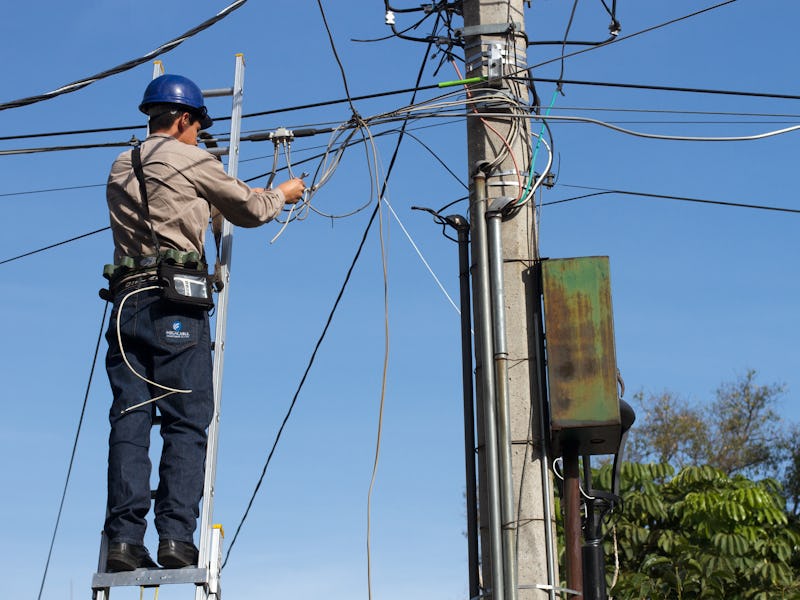
Once hailed as the future of cheap, fast, and accessible internet, it looks like Alphabet is pulling back on its masterplans to get Google Fiber in every American city. It announced on Tuesday that it would “pause our operations” to expand to eight potential cities and reduce its employee base. The post affirmed that the company will continue operations in cities where the service has already launched or is under construction.
“It entails us making changes to focus our business and product strategy,” Craig Barratt, SVP, Alphabet, and CEO of Access, who will be stepping down from the company, said in the post. “Importantly, the plan enhances our focus on new technology and deployment methods to make super-fast internet more abundant than it is today.”
When Google Fiber first launched in Kansas City in 2012, it was cheered as much-needed competition to telecommunications conglomerates like AT&T and Verizon, a possible cure to the digital divide, and even the future of the internet.
“The next phase of the Internet, the next chapter of the Internet is written here today, Patrick Pichette, Google’s chief financial officer confidently told The New York Times in 2012.
But by 2015, the company was hiking its rates and eliminated the previously free version of its service for new customers. Both Comcast and AT&T have been on a constant offensive against the company, recently suing the city of Nashville to halt an ordinance that would help Google Fiber.
So how much progress has Google made in the past four years? The service has expanded to eight cities, including Nashville, Atlanta, Austin, and Charlotte, North Carolina. Broadband internet speeds in the United States have tripled in the past four years, but in 2015 the United States was still ranked 30th in internet speed internationally. Alphabet has been losing more money than it is making on “moonshot” projects like Google Fiber, and halting the expansion of Google Fiber demonstrates a retreat to core products.
But just because Google is out of the picture for now, doesn’t mean that a future of an affordable and fast internet is gone. The Federal Communications Commission has been working pretty doggedly to hold providers more accountable for their pricing and service speeds, insisting that the internet is a public necessity, not just a luxury. Facebook and Microsoft are also working on creating a faster, more accessible broadband service to bring internet to previously difficult to reach parts of the world. And with the possibility that satellites will be bringing us internet from space by 2020, it looks like the digital divide will soon be a thing of the past.